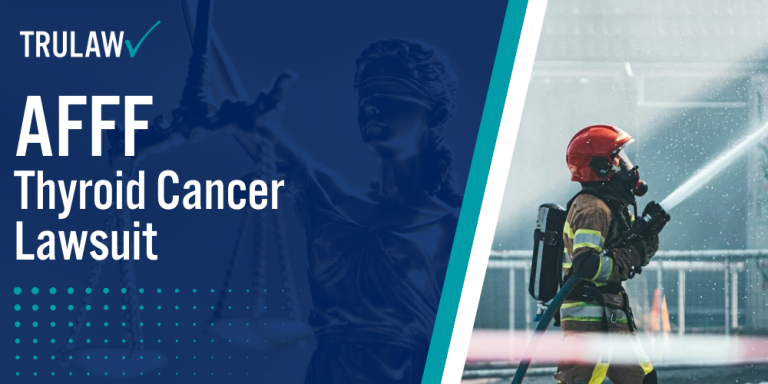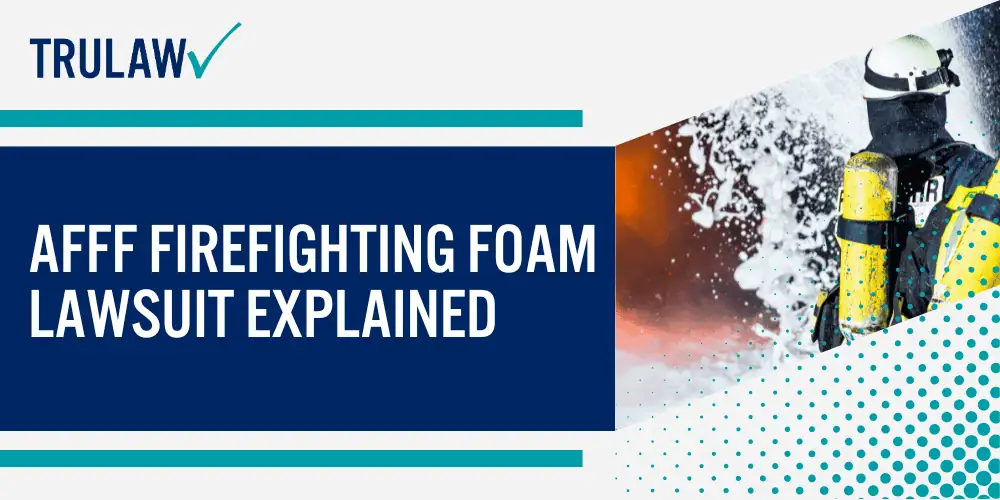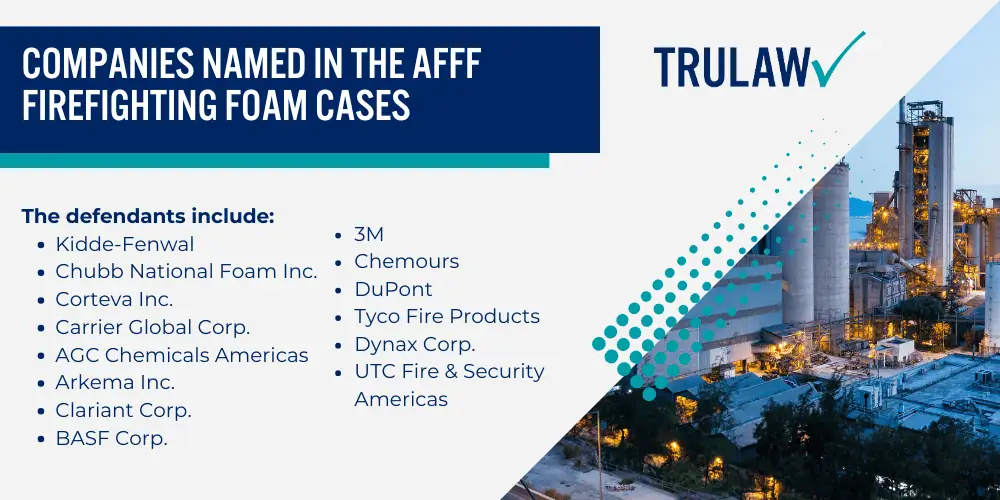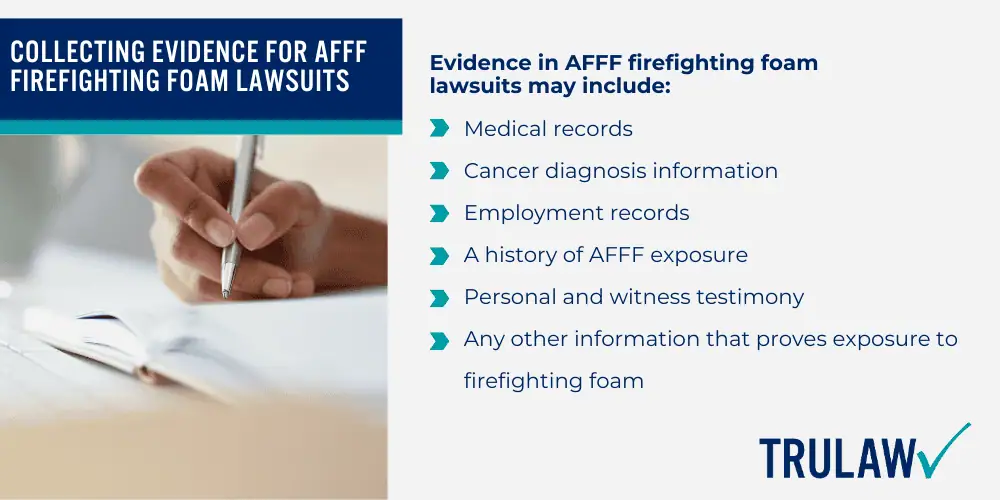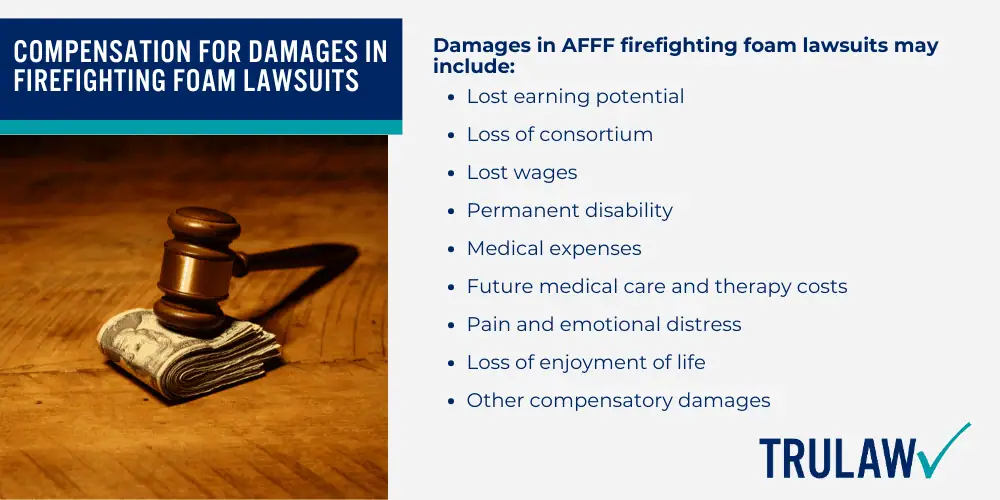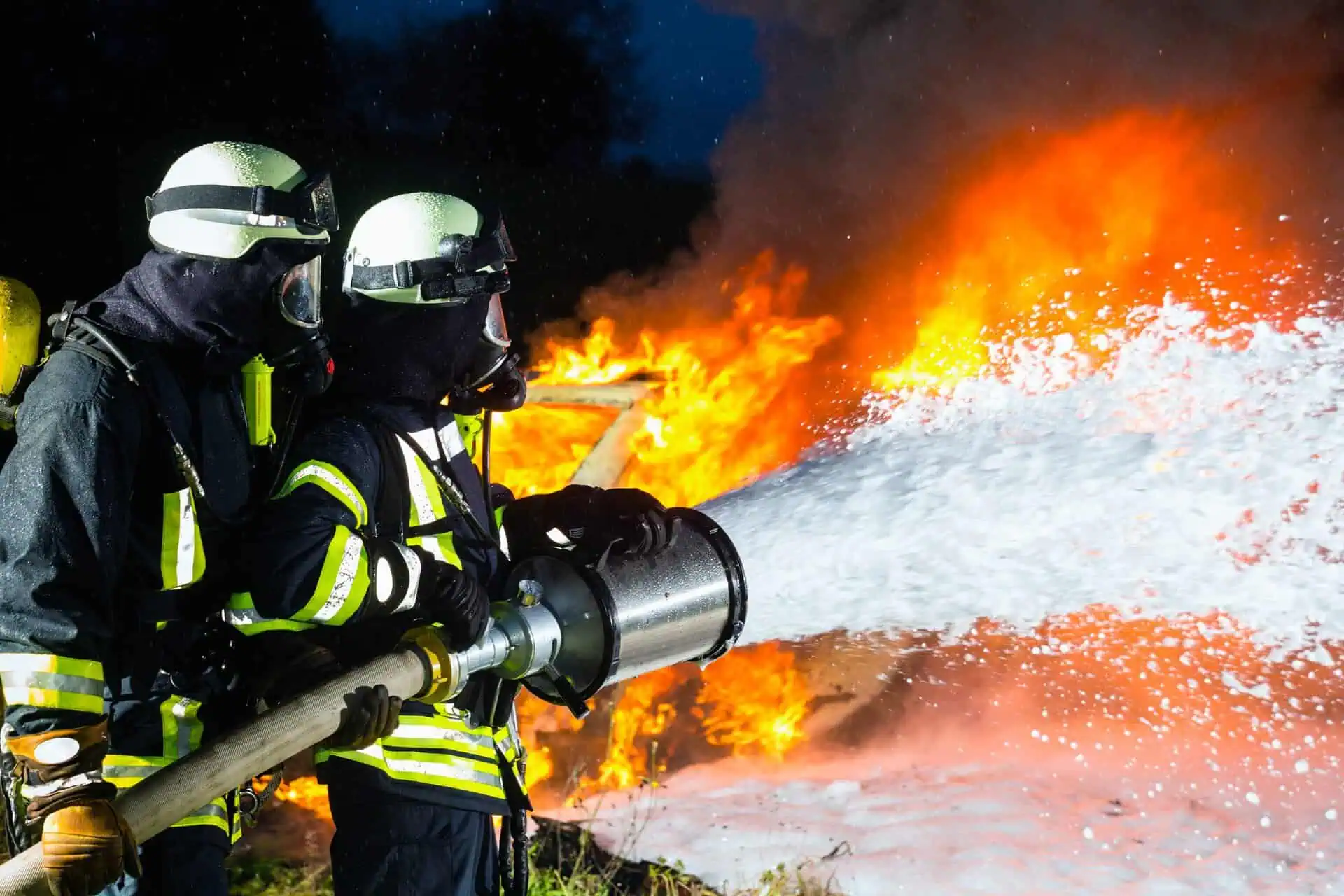As the number of toxic firefighting foam lawsuits continues to grow, research studies increasingly reveal the harmful effects of AFFF exposure.
Thyroid cancer, in particular, has been linked to PFAS chemicals found in AFFF.

Located in the neck, the thyroid gland is crucial for regulating metabolic processes by producing hormones such as thyroxine (T4) and triiodothyronine (T3).
Thyroid cancer can develop when cells within the thyroid gland undergo abnormal changes and begin to grow uncontrollably, potentially spreading to other areas of the body.
If you or a loved one were exposed to AFFF and later diagnosed with thyroid cancer or another illness, you may be eligible to file an AFFF lawsuit.
Use the chatbot on this page to see if you qualify, or contact us for more information.
Impact of PFAS Chemicals in Firefighting Foam on Human Health
For years, manufacturers and organizations like the U.S. Navy, which first approved AFFF, were aware of its toxic effects.
Research has demonstrated links between PFAS exposure and increased risks for various cancers and other health issues.
A number of scientific studies have confirmed the dangers of PFAS chemicals, leading to widespread concern over their health impacts, particularly for individuals like civilian and military firefighters, chemical plant workers, and those involved in the transport and production of firefighting foam.
Studies on AFFF exposure and health risks include:
- The U.S. Environmental Protection Agency (EPA) issued health advisories for PFOA and PFOS, noting that long-term exposure could pose health risks.
- The International Agency for Research on Cancer (IARC) classified PFOA as possibly carcinogenic to humans.
- A Journal of the American Medical Association study found an association between PFOA exposure and increased risks of kidney cancer, testicular cancer, and ulcerative colitis.
- A study in the International Journal of Cancer reported a link between PFOS exposure and breast cancer.
- Researchers at the National Research Centre for Environmental Toxicology (Australia) found elevated fluorinated surfactants in firefighters’ bloodstreams.
- A University of California, Berkeley study found women firefighters who used AFFF had higher levels of PFAS compared to their counterparts.
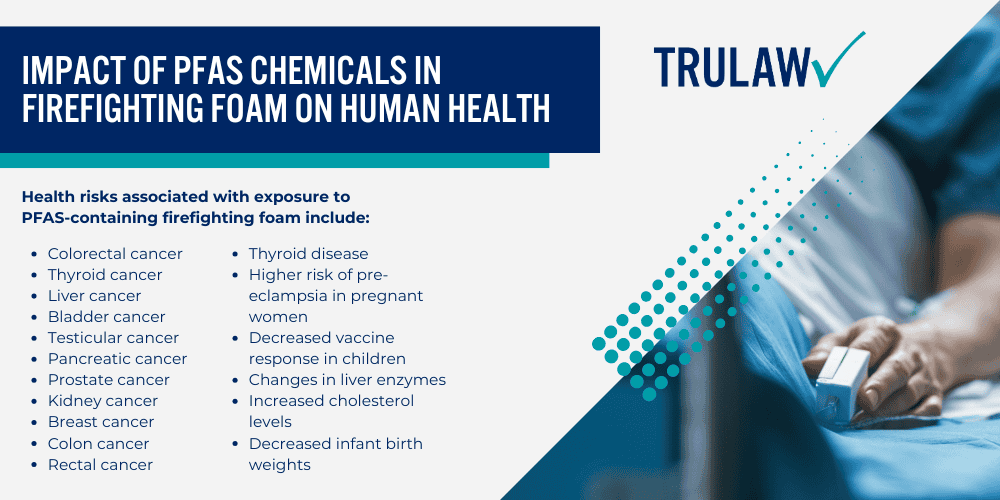
Health risks associated with exposure to PFAS-containing firefighting foam include:
- Colorectal cancer
- Thyroid cancer
- Liver cancer
- Bladder cancer
- Testicular cancer
- Pancreatic cancer
- Prostate cancer
- Kidney cancer
- Breast cancer
- Colon cancer
- Rectal cancer
- Thyroid disease
- Higher risk of pre-eclampsia in pregnant women
- Decreased vaccine response in children
- Changes in liver enzymes
- Increased cholesterol levels
- Decreased infant birth weights
These studies underscore the importance of ongoing research and legal action to address the harm caused by AFFF exposure.
